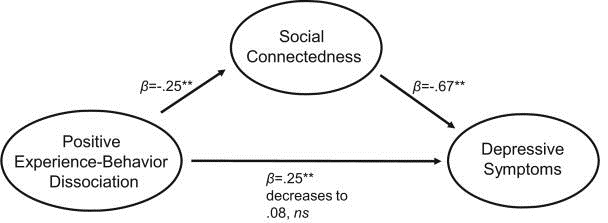Projects
Emotion Regulation and Psychological Health
 Stressors such as death of a loved one, unemployment, divorce, poverty, or injustice are frequently encountered by all humans. Critically, for some, these stressors lead to debilitating and long-lasting outcomes such as depression and anxiety disorders. Others, however, exhibit resilience in the face of stressors. What factors govern the vast individual variation in outcomes? One interesting possibility is suggested by emerging research, which implicates emotion regulation as a key psychological factor that predicts outcomes in the face of stressors. The present project aims to advance our understanding of this critical process. To do so, we (1) try to understand the sociocultural, developmental, cognitive, and emotional factors that lead to individual differences in emotion regulation, and (2) longitudinally examine the role that emotion regulation plays in adjustment to stressors. The long-term objective of this research is to contribute to preventing maladaptive and fostering adaptive outcomes in individuals exposed to stressful events or circumstances.
Stressors such as death of a loved one, unemployment, divorce, poverty, or injustice are frequently encountered by all humans. Critically, for some, these stressors lead to debilitating and long-lasting outcomes such as depression and anxiety disorders. Others, however, exhibit resilience in the face of stressors. What factors govern the vast individual variation in outcomes? One interesting possibility is suggested by emerging research, which implicates emotion regulation as a key psychological factor that predicts outcomes in the face of stressors. The present project aims to advance our understanding of this critical process. To do so, we (1) try to understand the sociocultural, developmental, cognitive, and emotional factors that lead to individual differences in emotion regulation, and (2) longitudinally examine the role that emotion regulation plays in adjustment to stressors. The long-term objective of this research is to contribute to preventing maladaptive and fostering adaptive outcomes in individuals exposed to stressful events or circumstances.
Coherence and Dissociation of Response Systems
 One major postulate of many contemporary theories of emotion is that emotion imposes coherence across multiple response systems (e.g., experiential, behavioral, and physiological). This postulate is derived from our understanding of emotions as functional, biologically adaptive entities. Surprisingly, few studies have tested this core hypothesis, and those that have done so have yielded mixed results. In this project, we obtain continuous measures of emotion experience, expression, and physiology, examining the conditions under which response coherence is evident. We are also interested in the consequences of low coherence, or dissociation, of responses for individuals’ social functioning and physical health. An example for these questions is whether dissociation between experience of an emotion and its behavioral expression lead to adverse outcomes for an individual.
One major postulate of many contemporary theories of emotion is that emotion imposes coherence across multiple response systems (e.g., experiential, behavioral, and physiological). This postulate is derived from our understanding of emotions as functional, biologically adaptive entities. Surprisingly, few studies have tested this core hypothesis, and those that have done so have yielded mixed results. In this project, we obtain continuous measures of emotion experience, expression, and physiology, examining the conditions under which response coherence is evident. We are also interested in the consequences of low coherence, or dissociation, of responses for individuals’ social functioning and physical health. An example for these questions is whether dissociation between experience of an emotion and its behavioral expression lead to adverse outcomes for an individual.
Beliefs about Emotion

People have strong intuitions about their emotions. These intuitions, in turn, may profoundly affect people’s emotion-regulation habits, social cognition, and health-relevant behaviors. For example, believing that emotions are “low,” bad impulses might lead a person to avoid their own and others’ emotions. Three sets of beliefs appear to play central roles: 1) emotion control values, which reflect whether people think they should control their emotions; 2) emotion controllability beliefs, which reflect whether people think they can control their emotions; and 3) valued emotions, which reflect the emotions people want to experience (the desired ends of emotion regulation). In this project, we examine how these beliefs come about, with a particular focus on cultural context, and how they influence emotion regulation and health-relevant behaviors. For example, in one set of studies we’ve found that people vary in how much they value happiness. While some people think that happiness is generally good for them, others believe their lives are essentially worthless if they aren’t happy. It turns out that the more extremely people value happiness, paradoxically, the more they are prone to experience depression. This appears to be the case despite – and perhaps because of – their best efforts to achieve happiness. These studies highlight the importance of beliefs about emotion in shaping emotion regulation and psychological health.
Bodily Response & Its Perception in the Construction of Emotion Experience
 Nowhere do our mental processes seem to be more clearly embodied than they are in the emotions. Anxiety, for example, has a very salient bodily component, which can seem overwhelming in clinical contexts. The greater the anxiety becomes, the more obvious the racing heart and the sweating palms might appear. Surprisingly, however, there is very limited empirical support for this intuitive link, and there are cases in which there appears to be a complete disconnect between bodily responding and emotional experience. In this project, we assess emotional experience, perceived physiological responses, and actual physiological responses during laboratory emotion inductions. We find that people often have very little insight into their actual physiological responses. They might, for example, feel their heart is racing (and feel highly anxious) while we see very little objective evidence this is actually the case. This disconnect between perceived and actual bodily responses has implications for what constitutes emotional experiences, suggesting that emotions might be more “mind-stuff” than “body-stuff.” Beyond basic theory, understanding this disconnect also has implications for psychological health. For example, greater disconnect between actual and perceived bodily responses could feed into problems such as anxiety disorders.
Nowhere do our mental processes seem to be more clearly embodied than they are in the emotions. Anxiety, for example, has a very salient bodily component, which can seem overwhelming in clinical contexts. The greater the anxiety becomes, the more obvious the racing heart and the sweating palms might appear. Surprisingly, however, there is very limited empirical support for this intuitive link, and there are cases in which there appears to be a complete disconnect between bodily responding and emotional experience. In this project, we assess emotional experience, perceived physiological responses, and actual physiological responses during laboratory emotion inductions. We find that people often have very little insight into their actual physiological responses. They might, for example, feel their heart is racing (and feel highly anxious) while we see very little objective evidence this is actually the case. This disconnect between perceived and actual bodily responses has implications for what constitutes emotional experiences, suggesting that emotions might be more “mind-stuff” than “body-stuff.” Beyond basic theory, understanding this disconnect also has implications for psychological health. For example, greater disconnect between actual and perceived bodily responses could feed into problems such as anxiety disorders.
